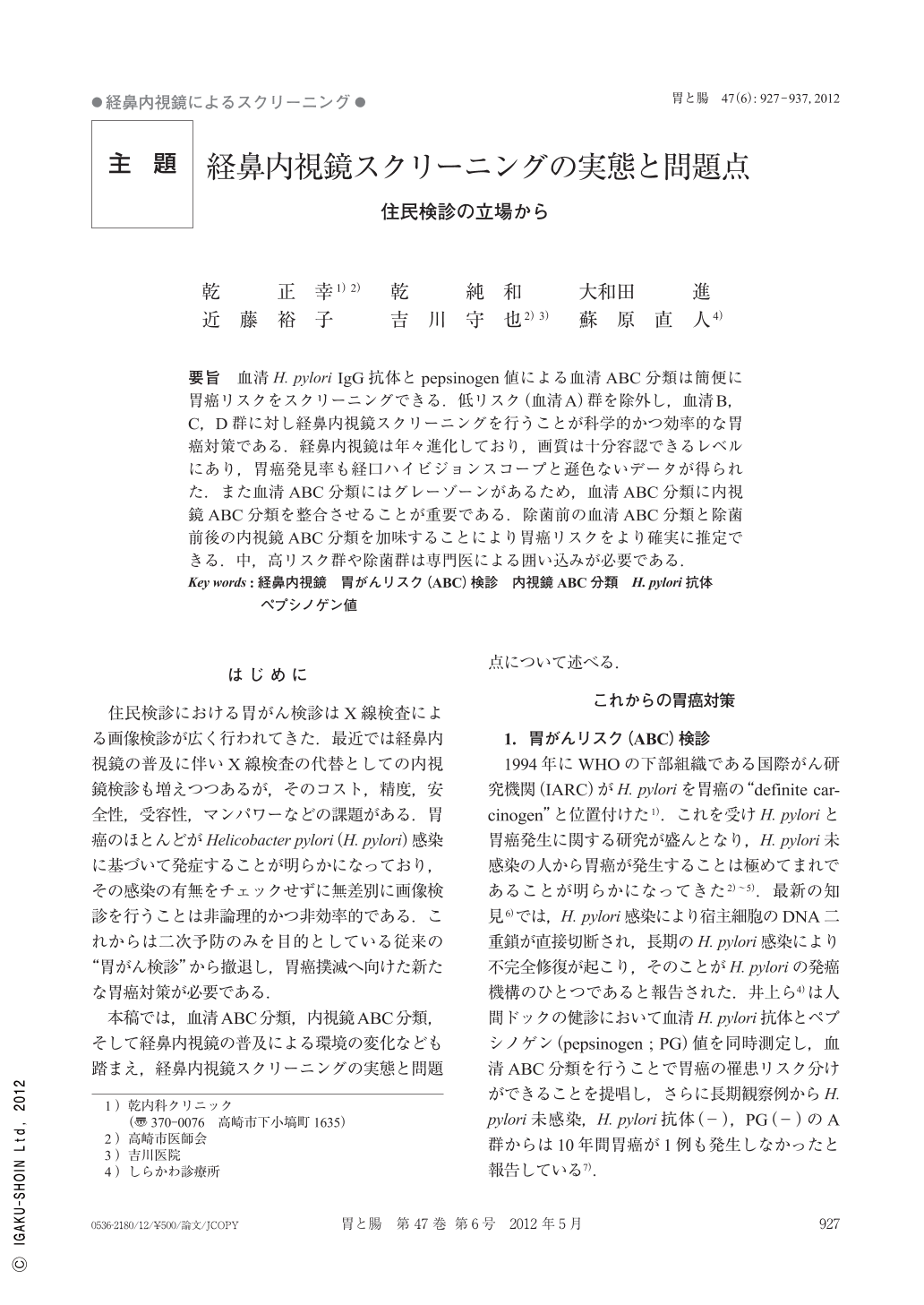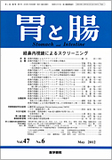Japanese
English
- 有料閲覧
- Abstract 文献概要
- 1ページ目 Look Inside
- 参考文献 Reference
要旨 血清H. pylori IgG抗体とpepsinogen値による血清ABC分類は簡便に胃癌リスクをスクリーニングできる.低リスク(血清A)群を除外し,血清B,C,D群に対し経鼻内視鏡スクリーニングを行うことが科学的かつ効率的な胃癌対策である.経鼻内視鏡は年々進化しており,画質は十分容認できるレベルにあり,胃癌発見率も経口ハイビジョンスコープと遜色ないデータが得られた.また血清ABC分類にはグレーゾーンがあるため,血清ABC分類に内視鏡ABC分類を整合させることが重要である.除菌前の血清ABC分類と除菌前後の内視鏡ABC分類を加味することにより胃癌リスクをより確実に推定できる.中,高リスク群や除菌群は専門医による囲い込みが必要である.
The serum ABC classification determined by measuring serum H. pylori IgG antibody and serum pepsinogen levels is a simple and scientifically reliable method for mass screening of gastric cancer, by which a lower risk group of those not infected with H. pylori, Group A, is excluded from further endoscopic examination, and higher risk groups(Groups B, C, and D)are subjected to further endoscopic examination. The quality of images obtained by transnasal endoscopy is fully acceptable, and the present investigation indicated that the detection rate for gastric cancer was found to be a close equivalent to that of transoral high vision endoscopy. Furthermore, the serum ABC classification must be confirmed with the endoscopic ABC diagnosis since the serum ABC classification has several cutoff points and then a gray zone. Harmonization of serum ABC and endoscopic classification enables us to more precisely estimate the risk of gastric cancer. Moreover, higher risk groups and group that took eradication therapy for H. pylori should receive follow-up by a specialist.

Copyright © 2012, Igaku-Shoin Ltd. All rights reserved.


